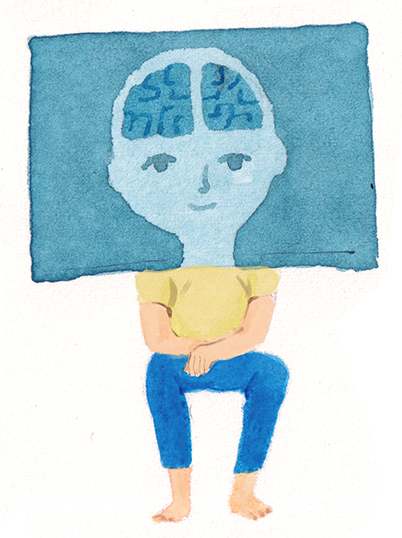Current assessments for dementia include:
- Cognitive status examination
- CT scan (Computerized Tomography scan) or MRI (Magnetic Resonance Imaging) or other imaging
- Blood tests
- Clinical judgment (history and physical examinations)

Current assessments for dementia include:

Dementia is a descriptive term for a collection of symptoms including impairment of memory, language skills, perception and cognitive skills (including reasoning and judgment) that significantly affect normal activities and relationships. A number of disorders that affect the brain can cause dementia, resulting in personality changes and behavioral problems such as agitation, delusions and hallucinations.
Health professionals often diagnose dementia according to the criteria listed in the Diagnostic and Statistical Manual of Mental Disorders, Fourth Edition (DSM-IV), currently published by the American Psychiatric Association. Cognitive status examination, CT scans and blood tests are used to determine if a person is showing symptoms of dementia and to check whether the symptoms are caused by other medical conditions. At the moment, an autopsy is required to make a definite diagnosis of dementia, according to the above criteria.
Instruments such as the Mini mental status examination (MMSE) and the Alzheimer's disease assessment scale (ADAS-Cog) are usually used to identify a person's cognitive function. These can be used to support diagnosis.
The brain images of people with dementia may show no gross abnormality, or be similar to those of people suffering from other diseases. Therefore, brain images are often used to rule out other causes for the symptoms, such as brain tumors or bleeding in the brain. These can also be used to determine whether there is infarction.
Blood tests are often used to determine whether a person is showing symptoms due to insufficient vitamin B12. They can also help to rule out other causes for the symptoms, such as metabolic, liver and thyroid diseases.
Clinical judgment is the most important factor in making a diagnosis. This is usually based on the history of the illness provided by the patient and his/her family, and physical examination of the patient. Physicians often diagnose dementia based on experience with reference to the criteria listed in DSM-V and other medical literature. Major criteria and examples are listed below:
Reference:
Diagnostic and Statistical Manual of Mental Disorders, Fifth Edition, Text RevisionPlease read "10 Signs of Dementia" and fill out the "Informant Questionnaire on Cognitive Decline in the Elderly (IQ-CODE)" if you suspect your family member may have dementia, or contact the following professionals: